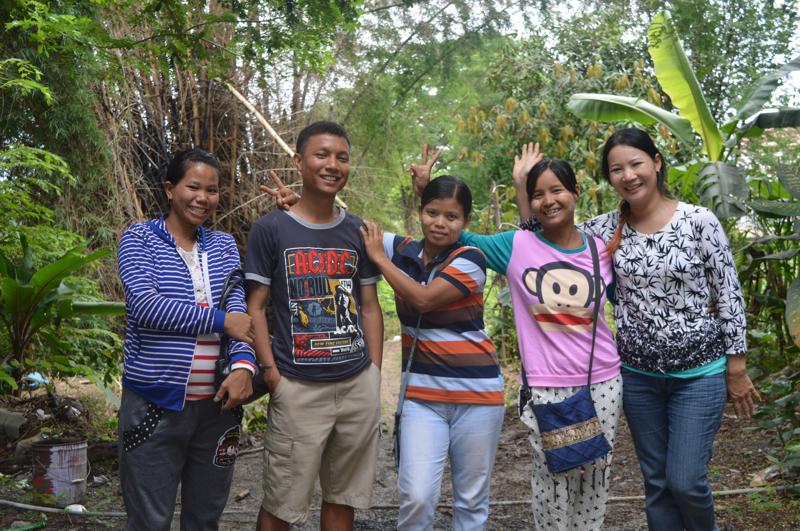Volunteer Policy

We’ve had some really amazing people come and work with us over the past 3 years since we started accepting volunteers in Mae Sot. We’ve been surprised and honored that there are those willing to uproot their lives, and often their families, in order to come and partner with us in the work we do to empower families, strengthen families, and keep families together. We’ve also learned, often the hard way, that there’s a right, and a wrong way to host and welcome expat volunteers. To do it well, to build a strong team, one needs to be able to resource these volunteers well.
Ideally this would include counseling and transition support when people arrive, help to find a home and find their way in the first months in Thailand, language teaching, ongoing debriefing sessions and support during their stay, exit and reintegration counseling, and probably a number of other things that we haven’t even thought of yet. It also involves already building programs and systems that people can plug into and participate in, as most people are more comfortable with that than with building a program from scratch in a foreign language.
These are all important, and vital to retaining and building a strong international team. They also require significant resources, especially in terms of time and personnel. Many organizations do this really well, and we applaud them for it.
As we’ve learned what’s needed to do an exemplary job of hosting volunteers, we’ve also realized that this is not what we want to devote resources to. Foreign volunteers require a lot of up front investment in time and energy, and a long period of transition to adapt to the local situation, and begin to understand the intricacies of the culture and problems faced by those we seek to help. Even after all that, foreign volunteers are not often invested in this community for the long term. They have lives and families back in their home country, and most will not stay past a year or 2.
We’ve also realized that recruiting foreign volunteers to do a job that a local person could be hired to do is not consistent with the core values of The Charis Project. Our goal is to empower families, strengthen families, and keep families together. So wherever possible we want to hire locals and provide for local families through employment.
This of course has some advantages. All of our work is relationship based and requires knowledge of the local language and culture. Local staff members already speak the language, often more than one. They understand the culture. They don’t draw negative attention when they go into villages to work. They don’t need help finding housing or transitioning to the culture. They are invested for the long term, because this is their home, and our investment in them will pay off down the road because they are more likely to stay. Any training we provide will go on to strengthen not only our staff, but the communities they live in, and will go to in the future.
Going forward if we have the choice between hiring someone local to do a job, or having a volunteer do it, our policy is now to hire someone local. It just makes more sense given our core values and priorities.
The obvious exception to this of course is training. We will always need volunteers who can come and train our local teams in skills they don’t already have. For example: counseling for trauma, therapy, business, healthcare.
We’ll also happily continue to host short term medical professionals and support them as they come to provide mobile health clinics, eye exams, developmental screenings, and more.
We still need storytellers. People who can give a voice to the voiceless and invisible in this part of the world, and help change their situation by making them known. We need those who can come and take beautiful photos and videos and write about what we do so we can raise the resources needed to continue building this important and life changing work.
If the above are things you have the desire and the skills to do, please contact us at info@thecharisproject.org
Carrien is co-founder of The Charis Project, Family Education Curriculum Developer, and mom of 6.
You can get her free mini-course on Making Your Family More Resilient here.
